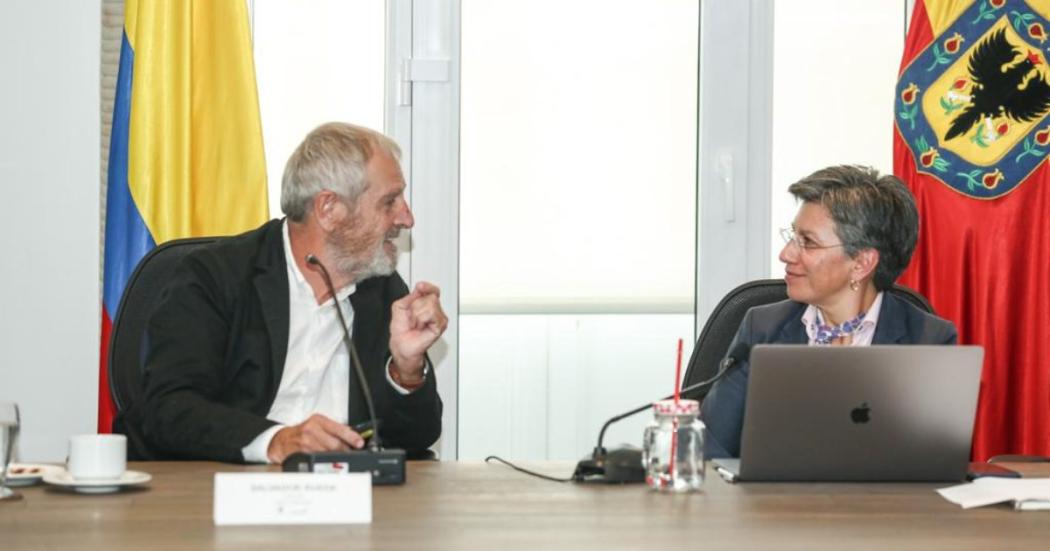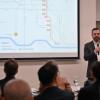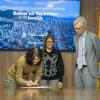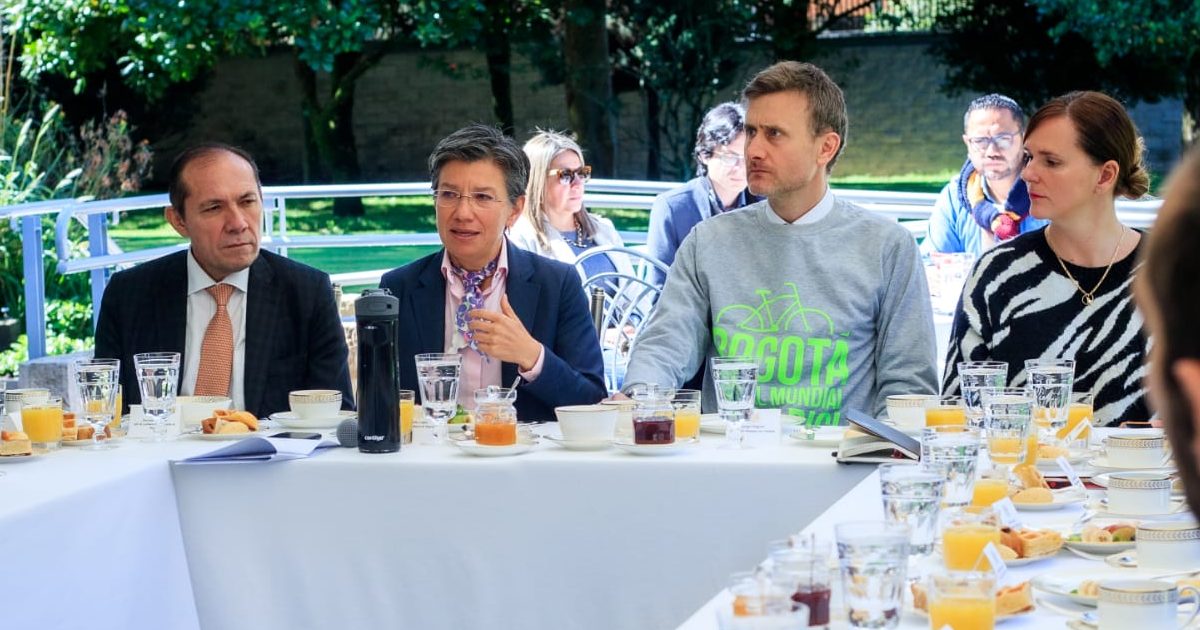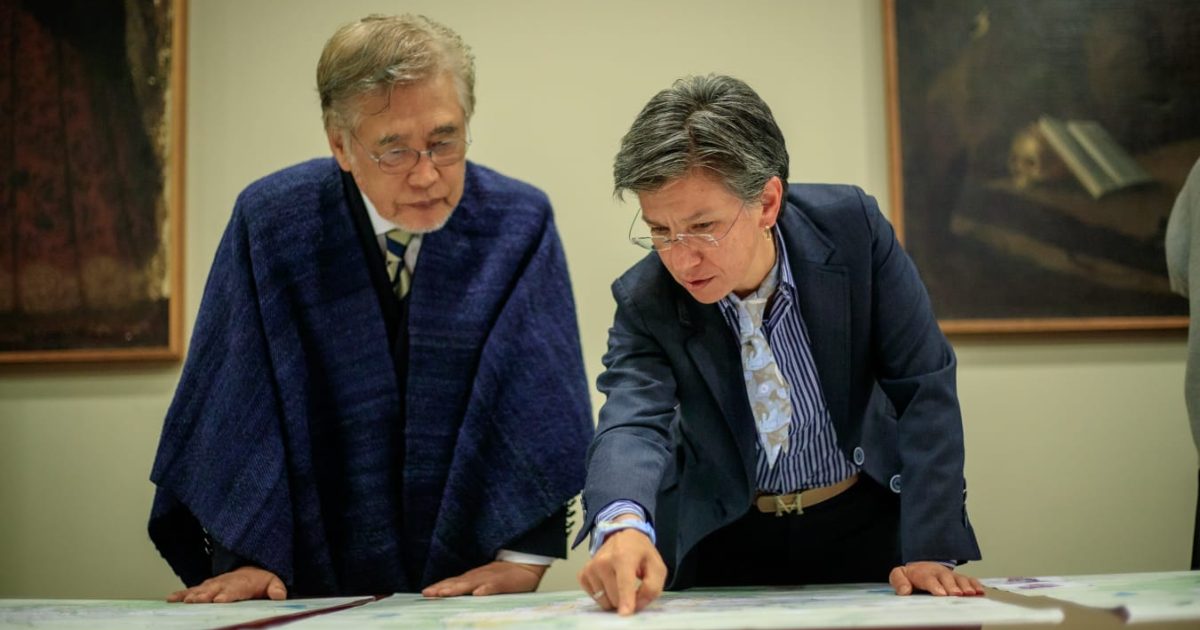On November 1st, the Mayor of Bogotá, Claudia López, met with World Bank consultant Salvador Rueda to discuss the Barrios Vitales (Vital Neighborhoods) program and explore the possibility of expanding this organization’s support to promote the project.
Rueda spent a week accompanied by the Ministry of Mobility getting to know the San Felipe Vital Neighborhood, the first of the vital neighborhoods launched and delivered to the community following joint intersectoral work for the training and promotion of local businesses and services.
During the meeting, the Mayor explained the benefits of the Barrios Vitales program to ensure the well-being of citizens and also of the environment, by establishing accessible spaces that can be arrived at by foot or bicycle and thus promote more sustainable mobility methods.
Mayor spoke with the architect YH Kwaak on sustainable development
The Barrios Vitales program responds to the concept of a Proximity City with which it is intended to establish and facilitate spaces for access to all kinds of services from a sustainable development perspective.
The Mayor also reiterated that the Barrios Vitales are a clear example of the advances that Bogotá is making. "Through these projects, we are fulfilling the commitment we have to citizens, we are creating more walkable areas, more jobs, and more green spaces," she said.
Below, a tweet from Mayor Claudia López announcing the meeting with the representatives of the World Bank:
Tuvimos un diálogo fructífero con representantes del @BancoMundial y su gran consultor y experto urbanista ecológico, Salvador Rueda, sobre el concepto de supermanzanas para implementarlo en Bogotá, ya existen en Barcelona, Berlín, New York, Vancouver, B. Aires y entre otras. pic.twitter.com/nyPTmXu6G9
— Claudia López Hernández (@ClaudiaLopez) November 2, 2022
In the case of Barrio Vital San Felipe, the space that was dedicated to the circulation of vehicles has been transformed through tactical urban planning and infrastructure interventions, which reorganize the public space allowing there to be areas dedicated to pedestrians, vehicular traffic, parking, and loading and unloading areas, among others.
For his part, World Bank representative Rueda was interested in the project and highlighted the importance of establishing adequate spaces based on the implementation of intersectorality, especially in a city like Bogotá, which, according to the expert, has the aptitude and ability to make those real changes.
“What I have seen in Bogotá is that they have all the potential to not only meet the objectives of proximity in the city, but also to carry out humanistic urban development that cares about people. All of this has been done through the extremely impressive Care Blocks initiative”, asserted Rueda.
Finally, the World Bank's commitment to the Barrios Vitales program was ratified. Additionally, the possibility of future collaboration on sustainable urban development projects that, in the same way, can be identified as definitive actions for the care of people and the planet was explored.
